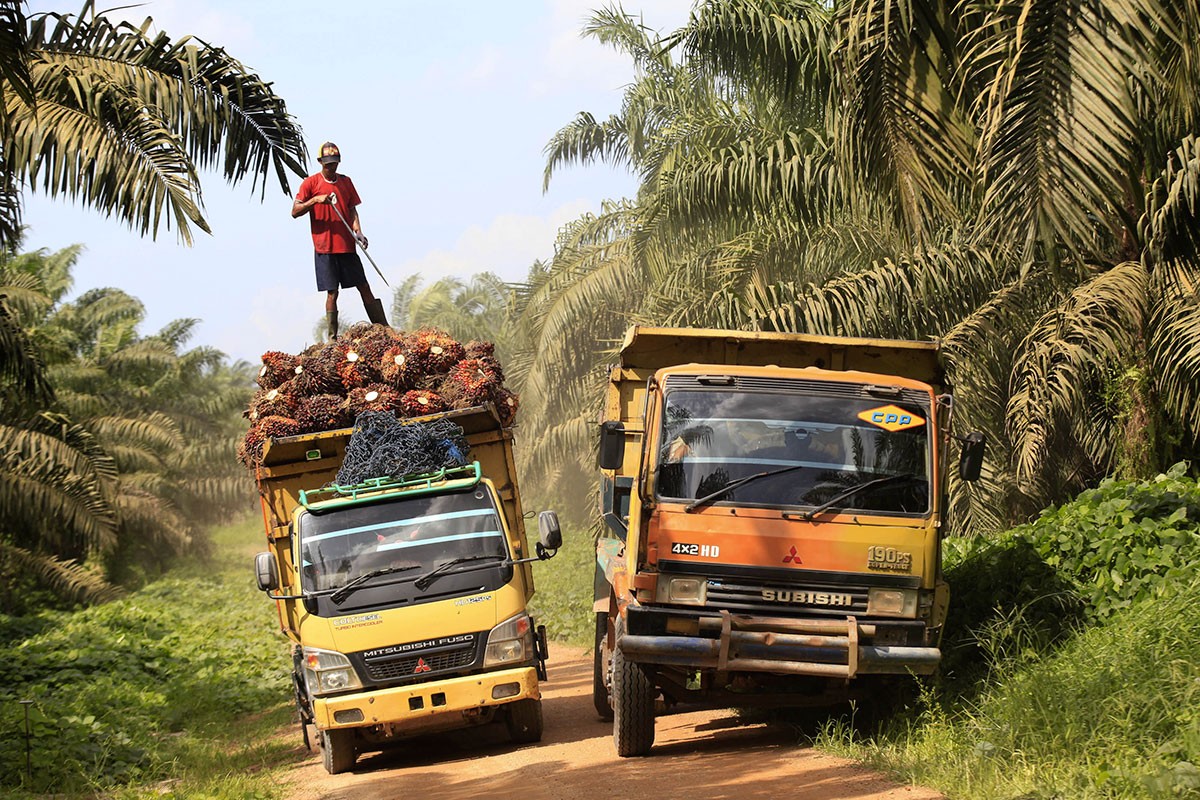Popular Reads
Top Results
Can't find what you're looking for?
View all search resultsPopular Reads
Top Results
Can't find what you're looking for?
View all search resultsPalm oil practices and ecosystem sustainability
In 2016, the Indonesian Ombudsman recorded 450 agrarian conflicts on 1,265,027 hectares of land. Plantations caused the highest numbers of cases with 163 conflicts on 601,680 hectares and oil palm plantations were the worst offenders.
Change text size
Gift Premium Articles
to Anyone
A
s regards the historic track, palm oil is not deemed an indigenous commodity. Palm oil is the newcomer’s commodity, brought to Indonesia by the Dutch in 1848 with seeds planted in the Bogor Botanical Garden and as decorative vegetation along the thoroughfare in Deli, North Sumatra.
Commercialization of palm oil commenced in 1911 in Deli and Aceh. Currently it has grown to be the leading commodity in Indonesia as the third largest contributor to the country’s revenues from the non-oil and gas and labor intensive sectors.
However, Indonesia has been enraged by the European Parliament’s resolution on palm oil entitled “EU to introduce minimum sustainability criteria for palm oil and products containing palm oil that enter the EU market”.
Some experts claimed in their research-based responses that deforestation in Indonesia is not caused by palm oil. Unfortunately, the research is confusing. On the other hand, the environment and forestry minister was enraged by the European Parliament’s statement. This led to the hullabaloo concerning palm oil in Indonesia.
Responding to the resolution, the annoyed minister said that the resolution was a humiliation and a disgrace to Indonesia’s sovereignty. The protests were then conveyed by the Foreign Ministry, which stated that the resolution was discriminatory against palm oil.
Such a tumult is not the first. Some green and social organizations have already passed judgment on the destruction of forest, peat land and community land confiscated by large oil palm plantations for expansion.
Oil palm cultivation is even happening in forest areas that according to the Forestry Ministry are reserved exclusively for forestry and oil palms are not forest vegetation at all.

















